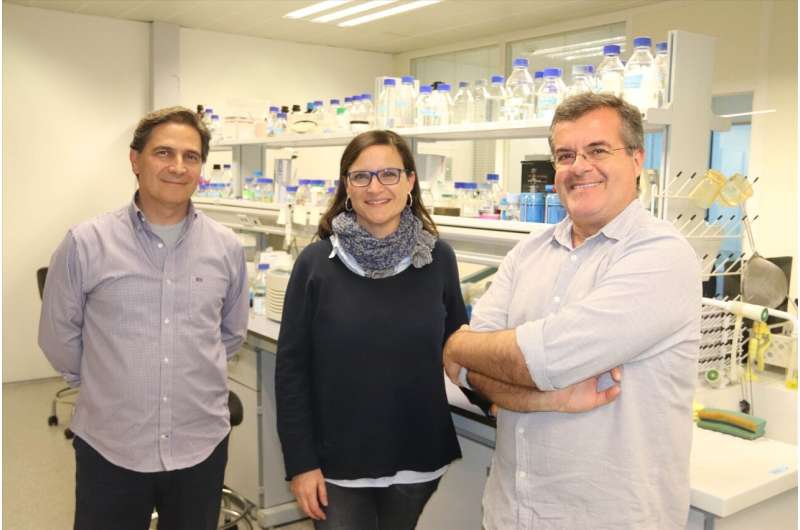New discovery to fight citrus exocortis viroid

What's a viroid like you doing in a ribosome like this? This is the question set out by a team from the Institute for Plant Molecular and Cellular Biology (IBMCP, in Spanish), a joint center of the Universitat Politècnica de València and the Spanish National Research Council (CSIC, in Spanish). The answer opens a door, unknown until now, to fight viroids. These pathogens have great infectious power in plants, and they are one of the biggest enemies of crops, especially citrus crops.
From their laboratories, scientists have described for the first time how a pathogen–in this case the citrus exocortis viroid–can cause ribosomal stress in plants, which directly affects their physiological state. The study, whose conclusions have been published in the renowned journal Nucleic Acids Research, also includes the participation of researchers from the Université de Sherbrooke (Québec, Canada) and the Goethe University (Frankfurt, Germany).
"This study opens a new dimension in viroid pathogenesis. This is the first time that viroids, plant pathogens, have been proven to cause a failure in ribosome assembly, which is needed for protein biosynthesis," explains Purificación Lisón, researcher at the IBMCP and lecturer at School of Agricultural Engineering and Environment (ETSIAMN), UPV.
In the protein synthesis process, known as "translation," the ribosome is the molecular machinery responsible for reading and decoding the messenger RNA sequence and turning it into a protein sequence. In the study, the team of Spanish, Canadian and German researchers has proved how the viroid is capable of modifying this process, and "the bigger this alteration is, the sicker the plant becomes," explains Purificación Lisón.
RNA wars
But how can a viroid cause this alteration? Researchers have discovered that viroids, which are RNA sequences themselves, interfere with ribosomal RNA splicing, a key step in ribosome formation and assembly. "The pathogen could be interfering with the RNA maturation process, which would directly affect ribosome formation, leading to plant translation machinery failure and ultimately causing the illness," explains Ismael Rodrigo, researcher at the IBMCP and lecturer at School of Agricultural Engineering and Environment (ETSIAMN), UPV.
A potential biotechnological solution to avoid this would consist in competing against the interference generated by the viroid by producing extra copies of an RNA molecule, which is needed for ribosomal RNA splicing, which may have been displaced by the presence of the viroid. "By doing so, we would prevent viroids from altering the correct maturation of the ribosomal RNA. This could be considered an RNA competition strategy," says Alejandro Ferrando, another researcher at the IBMCP –Research Scientist at CSIC- involved in this work.
In their study, the teams from the UPV, CSIC, the Université de Sherbrooke and the Goethe University have mainly worked with tomato plants, which have been used as experimental hosts. "This plant shows the same illness as citrus and it is easier to handle," explains Purificación Lisón.
Besides citrus and tomato, viroids affect other crops as well, such as potatoes, grapes, apples, peaches and avocados, amongst others.
Next challenges
Researchers are now studying whether the discovery obtained in viroids could also occur in other plant pathogens. Moreover, they point out that their study could open other ways for research by applying their findings in human ribosomopathies.
More information: Patrick Cottilli et al. Citrus exocortis viroid causes ribosomal stress in tomato plants, Nucleic Acids Research (2019). DOI: 10.1093/nar/gkz679
Journal information: Nucleic Acids Research
Provided by Universitat Politècnica de València


















